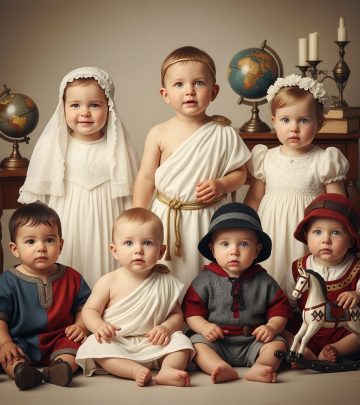Migo: Baby Name Meaning, Origin, Popularity, and Insights
Discover the unique roots, global appeal, and cultural perceptions of the baby name Migo, including meaning, trends, and usage tips.

Migo is a distinctive and playful baby name that has attracted attention for its phonetic charm, versatility, and cross-cultural intrigue. Though considered unconventional, its global interest and ease of use make it an appealing choice for modern parents seeking something both memorable and approachable.
Meaning and Origin of Migo
- Origin: The name Migo is believed to have Spanish roots, commonly used as a diminutive or nickname for longer names such as Rodrigo or Miguel, and names beginning with “Mi-“.
- Uncertain Origins: Other sources note that Migo’s etymology is unclear, and it may be a shortened version of various names or an independent, playful nickname.
- Interpretation: In playful contexts, Migo is sometimes interpreted as “my go-to” or “my favorite,” lending it an affectionate and friendly connotation.
- Cultural Variance: There are user-submitted meanings asserting Migo means “buddy” in both Spanish and English-speaking communities.
- Indonesian Context: Migo has also appeared as a given name in Indonesian culture, associated symbolically with clouds, reflecting tranquility and calmness.
Pronunciation and Basic Details
| Pronunciation | Gender Usage | Spelling Variations | Common Nicknames |
|---|---|---|---|
| MEE-go (emphasis on first syllable) | Primarily masculine, but could be unisex | Mygo, Migoe, Migoa | Mig, Go, Goo |
The name is straightforward—just two syllables, easy to write and call, and generally remembered after a first introduction.
Popularity of the Name Migo
- Global Rank: The name Migo holds an overall rank of 67,987 among baby names; its rank for boys is 72,681.
- Rarity: Migo is not a common choice in most countries, and rarely appears in top-100 baby name lists, including the United States.
- Regional Interest: The name sees most interest in Morocco, Egypt, United States, Libya, and Algeria.
- Popularity Factors: Its rarity adds a sense of exclusivity, allowing children named Migo to stand out in social and educational contexts.
Cultural, Religious, and Historical Significance
- Religion: No documented religious significance is associated with Migo.
- Cultural Adaptability: The name’s friendly and playful sound makes it easy to adopt across various cultures, even in places where diminutives are popular.
- Historical Roots: No significant historical records link Migo to prominent figures, events, literature, mythology, or religion, meaning it remains culturally flexible.
- Literature and Media: Migo is not a character found in classic literature, mythology, or mainstream movies or TV programs.
Perceptions and Feelings Associated with Migo
- Positive Traits: Unique, playful, friendly, optimistic, memorable, approachable.
- General Perception: Parents and children tend to view Migo as inviting, fun, and easy to remember—attributes that help it stand out among traditional names.
- Potential Negatives: May seem unfamiliar to those encountering it for the first time, and initial pronunciation might be misconstrued.
Global Variations and Linguistic Connections
- Spanish Connections: Derived as a nickname for Rodrigo or Miguel.
- Indonesian Usage: In Indonesia, Migo (alternatively Migu) can be connected to natural imagery, representing clouds—symbolizing serenity and spiritual calm.
- Similar Names: Miguel, Migoa, Migoe, Mygo (often arising from typos or creative derivatives).
- Other Associations: The name can sometimes appear as a surname in South American cultures, such as in Peru.
Practical Considerations for Parents
Migo offers several practical benefits and considerations for parents choosing a baby name:
- Ease of Spelling and Pronunciation: Simple and intuitive.
- Memorability: Its short length and phonetic clarity make it easy to recall.
- Nickname Potential: Options like Mig, Go, and Goo allow for playful variants.
- Typos: Watch for common misspellings such as Mygo, Migoe, or Migoa which can occur during registration or informal usage.
Migo in Popular and Contemporary Culture
- The name is generally absent from mainstream literature, entertainment, and mythology, emphasizing its modern appeal and unique character.
- Migo is increasingly found in online communities and digital resources as parents seek unconventional and globally adaptable names.
Spiritual and Metaphysical Associations
- User submissions have described personality associations with curiosity, science, and even a mystical connection to magic—though these are anecdotal rather than built on documented tradition.
- The Indonesian association of clouds conveys peace and tranquility, infusing a subtle spiritual undertone into the name.
Expert Tips for Choosing the Name Migo
- Consider Context: If you want a name that is friendly and universally accessible, Migo’s lack of specific cultural or religious ties makes it ideal.
- Balance Rarity and Simplicity: While rare, Migo is easy to use and doesn’t carry risks of misunderstanding or confusion in most contexts.
- Global Mobility: Its neutrality and adaptability work well if your family may move or interact internationally.
- Nickname Flexibility: Use Mig or Go for informal situations or as terms of endearment.
- Double-check Registrations: Ensure you use the correct spelling in all official documents to avoid issues with common typos.
Frequently Asked Questions (FAQs) about Migo
Q: Is Migo primarily a boy’s name or can it be used for girls?
A: Migo is most often used for boys, but its playful sound and lack of gender-specific meaning mean it could also work well for girls as a unique, unisex choice.
Q: What does Migo actually mean?
A: Migo’s direct meaning is unclear and largely depends on the cultural or linguistic context. It is usually seen as a nickname for longer Spanish names, but can also be interpreted as “my go-to,” “favorite,” or “buddy” in informal English and Spanish settings. In Indonesia, it carries an association with clouds, symbolizing tranquility.
Q: How do you pronounce Migo?
A: Pronounce Migo as MEE-go, emphasizing the first syllable. It is easy to say and recall in most languages.
Q: Is Migo a popular name?
A: Migo is relatively rare, ranking low in global charts, which is part of its appeal for parents looking for something unique.
Q: Are there any famous people named Migo?
A: No well-known celebrities or historic figures currently carry the name Migo.
Q: Are there variants or related names?
A: Yes, common variants or similar names include Miguel, Migoa, Mygo, and Migoe. These may differ slightly in origin or meaning but share phonetic similarities.
Q: What are the typical feelings or impressions associated with Migo?
A: Migo is perceived as friendly, approachable, unique, and optimistic. It offers modern appeal with roots in Spanish and Indonesian language traditions.
Summary Table: Migo Name at a Glance
| Aspect | Insight |
|---|---|
| Origin | Spanish, Indonesian; nickname for Rodrigo/Miguel or cloud symbolism |
| Gender | Primarily male, but unisex usage possible |
| Meaning | Unknown; “my go-to”, “buddy”, “favorite” |
| Pronunciation | MEE-go |
| Popularity | Rare, globally unique |
| Nicknames | Mig, Go, Goo |
| Typos | Mygo, Migoa, Migoe |
| Notable Persons | None documented |
Final Thoughts
Migo is a truly global name—marked by its versatility, simplicity, and friendly tone. Whether used for a boy or girl, it offers novelty without requiring complex spelling or cultural background checks. For parents drawn to rare, but approachable names that are easy to call and remember, Migo merits strong consideration. Its resonance in several continents and associations with friendliness and tranquility make it a stand-out candidate for modern baby naming.












